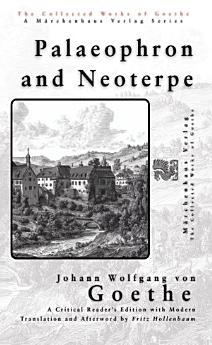Palaeophron and Neoterpe
About this ebook
Published in 1819 as part of the first edition of West-östlicher Divan, Palaeophron und Neoterpe is the opening book of Goethe’s twelve-part poetic cycle that stages a cultural dialogue between the “West” and the poetic traditions of the Islamic East. The names—meaning roughly "Old Mind" and "New Delight" in Greek—frame the dialectic at the heart of the Divan: between inherited wisdom and fresh sensual immediacy, between reflection and experience. These poems set the tone for the cycle as a whole, balancing lyrical confession, allusion, and philosophical play in compressed, musical German verse.
In these early poems, Goethe introduces the voices and roles that will recur throughout the Divan, especially the poetic figure Hatem, modeled partly on Hafez, and his countervoice Suleika. The verses explore aging, poetic authority, love, and mortality, while invoking Persian images of wine, gardens, and mystic longing within a cultivated, ironic tone. Though brief, the poems in Palaeophron und Neoterpe show Goethe testing the lyrical form as a means of self-presentation, cultural inquiry, and emotional distance, opening the Divan not with declaration but with measured, searching verse. This first book serves as a quiet prelude to the wider philosophical and poetic experiment of the entire Divan cycle.
This critical reader's edition offers a modern translation of the original Fraktur manuscript (the old German script) to help curious readers delve into Goethe's works. It uses clear, contemporary language and straightforward sentences to illuminate his complex ideas. The edition includes supplementary material that provides autobiographical, historical, and linguistic context for this eighteenth-century work. This material includes an afterword by the translator that discusses Goethe’s history, impact, and intellectual legacy, as well as an index of the philosophical concepts he explored, with a focus on Romanticism and Classicism. Also included are a comprehensive chronological list of his published writings and a detailed timeline of his life, highlighting the personal relationships that profoundly influenced his philosophy.











